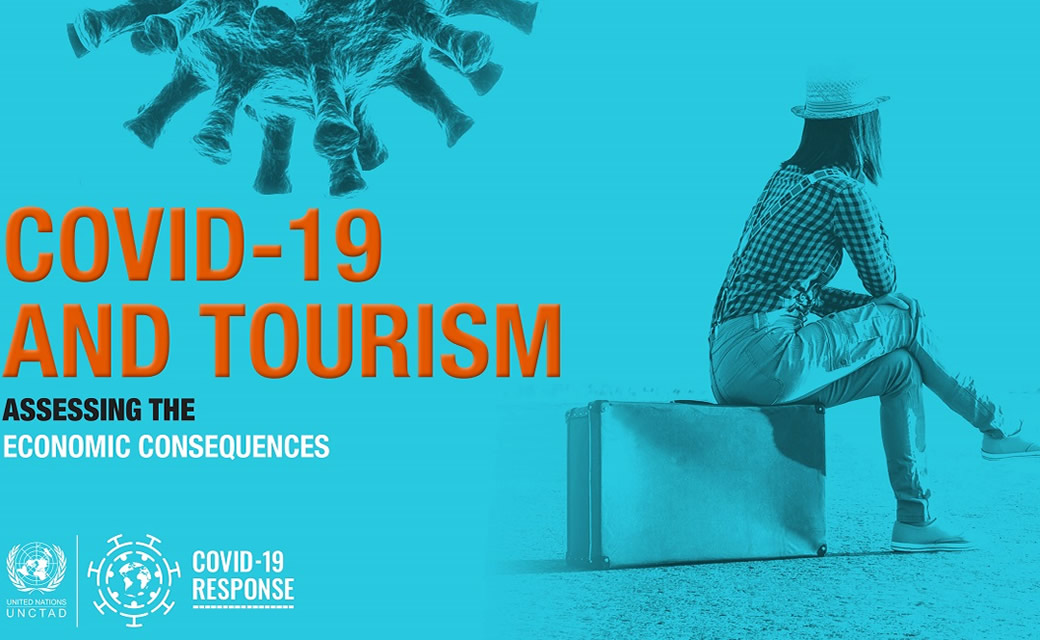The global tourism standstill due to COVID-19 has costed the sector dearly, especially in countries heavily reliant on it, like small island nations, beaching shores, primate national parks and savanna national park. This violence of the Covid-19 threatens to bring everything down and the professionals of the tourist sector do not hide their concern about the resurgence of the Covid-19 in Uganda with the repercussions that this pandemic may have on both the economic and social levels.
OECD expects international tourism to fall by around 80% in 2020. Destinations that rely heavily on international, business and events tourism are particularly struggling in the industry from small tour operators to multinational hotel chains and major airlines. According to the latest world travel & tourism council, Covid-19 will impact in baseline scenario, an estimated 121.1 million jobs, and more than $ 3.4 trillion in GDP could be lost in 2020. The longer term damage to the live hoods of those in industry remains to be seen.
Despite the pandemic, the encouraging news on vaccines has boosted hopes for recovery but challenges remain, with the sector expected to remain in survival mode until 2021. For tourism to recover from the coronavirus pandemic, it needs the help form the government. Uganda is clearly blessed with a range of visitor attractions and, prior to the pandemic, many had long-standing, successful tourism industries. As a source of jobs, foreign exchange and contribution to GDP, tourism has the potential to be a catalyst for recovery across much of the region.
“The Covid-19 crisis is a watershed moment to align the effort of sustainable Development Goals (SDGs) to ensure a more resilient, inclusive, cabon neutral and resource –efficient future” says the UN report.
Ways on how tourism can be sustainably.
- Digital transformation and advance innovation of tourism. The pace of travel and tourism service digitization is being rapidly accelerated during the pandemic. Online platforms for services, marketing, payment and processes have risen in popularity as consumers avoid person –to –person contact. They have also become primary ways to provide and receive health Safety standards and other pertinent information about the destination.
- Partnerships and coordination among different countries that deals in Tourism industry. There is nothing impossible to restart and recover tourism when people are ready to work together to ease and lift travel restricts in a responsible and coordinated manner. The scale and global nature of the current crisis have forced the industry’s business organizations, public institutions and others to cooperate on the destination, national and international levels. Moreover, coordination with no traditional entities such as health agencies has become vital.
- Mitigate socio- economic impact on live hoods. The world Tourism Organization (UNWTO) already has highlighted various roles of public-private committees and task forces in crisis response and recovery.
- Build resilience and boost competitiveness for example the world Economic Forum’s COVID-19 Action Platform which includes industry multi-stakeholder projects such as common Pass , an in initiative that aims to develop a global, interoperable framework to safely restore cross-border travel to pre-pandemic levels.
About coronavirus.
Coronaviruses are a large family of zoonotic viruses that cause illness ranging from the common cold to severe respiratory diseases. Zoonotic means these viruses are able to be transmitted from animals to humans. The COVID-19 infection is spread from one person to others via droplets produced from the respiratory system of infected people, often during coughing or sneezing. There are several coronaviruses known to be circulating in different animal populations that have not yet infected humans. COVID-19 is the most recent to make the jump to human infection and this has affected the whole world leading to loss of many lives
What are the outcomes of the infection?
- Kidney failure
- Severe acute respiratory syndrome.
- Death
- Pneumonia
What are common signs of COVID-19 infection?
- Dry cough
- Fever
- Shortness of breath
- Breathing difficulties
What were the measures put to prevent the coronavirus from spreading
In order to prevent such deadly infection in the whole world, the drastic measures must be followed,
- Cover your face with a tissue or your elbow when coughing or sneezing
- Masks may provide some protection to you and others, but because they are loose and made of permeable material, droplets can still pass through.
- People have been advised to have self-quarantine in order to safe guard those that are not affected
- Visit a doctor if you have symptoms and avoid direct contact with live animals in affected areas.
- Wash your hands frequently and thoroughly with soap as well as sanitizer.
What are some of the ways of rebuilding tourism globally and sustainably?
- Restoring traveler confidence
- Tourism businesses should be supported by the government to adapt and survive
- Supporting safe return of international tourism as well as promoting domestic tourism
- Providing clear information to travelers and businesses, and limiting uncertainty
- Evolving response measures to maintain capacity in the sector and address gaps in supports
- Strengthening co-operation within and between countries
- Building more resilient, sustainable tourism
- Observing SOPs during tour safaris to safe guide the lives of travelers.
